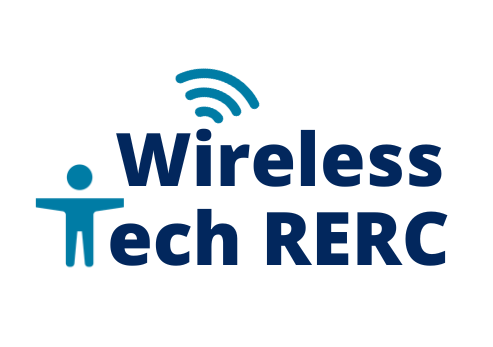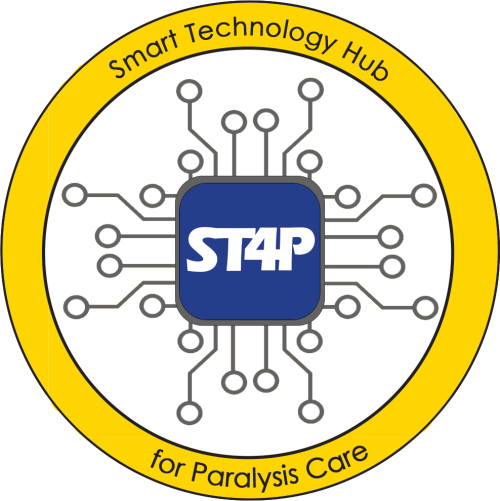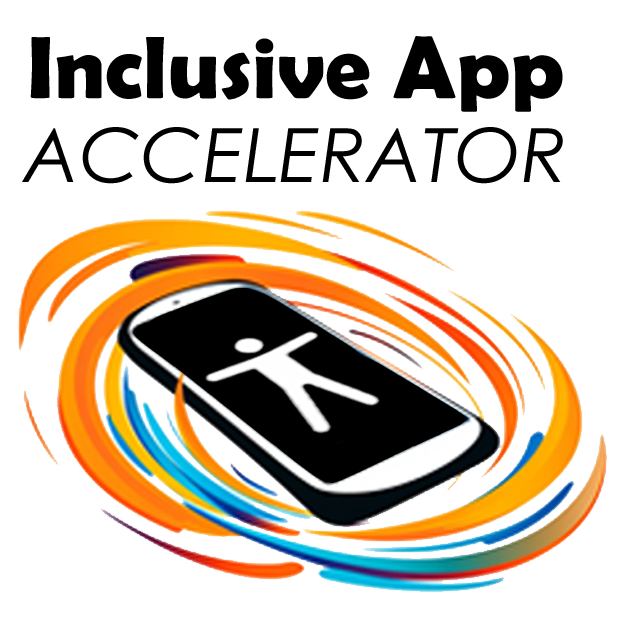Through our research, we aim to transform how technology is used, making it more inclusive and supportive of independence and quality of life.
Our work is supported and facilitated by two major research centers: the Rehabilitation Engineering Research Center on Wireless Technology (Wireless RERC) and the SmartTech Hub for Paralysis Care (ST4P). These centers provide the infrastructure and collaborative environment necessary to advance our research and achieve our goal of making smart technology accessible to all.
The Wireless Technology Rehabilitation Engineering Research Center (Wireless RERC)
 The Wireless RERC was established in October 2021 with support from the National Institute of Disability, Independent Living, and Rehabilitation Research (NIDILRR). We are committed to engaging all key stakeholders, including people with disabilities, clinical care providers, and industry, to develop and pilot innovative, viable, and scalable technology services that enhance access to and effective utilization of mainstream wireless technology (e.g., smartphones, smart home devices, smart speakers, and wearables) for people with various disabilities.
The Wireless RERC was established in October 2021 with support from the National Institute of Disability, Independent Living, and Rehabilitation Research (NIDILRR). We are committed to engaging all key stakeholders, including people with disabilities, clinical care providers, and industry, to develop and pilot innovative, viable, and scalable technology services that enhance access to and effective utilization of mainstream wireless technology (e.g., smartphones, smart home devices, smart speakers, and wearables) for people with various disabilities.
Read the original press release
The Smart Tech Hub for Paralysis Care (ST4P)
 The ST4P was established in September 2023 with support from a private trust. This initiative is dedicated to exploring the optimal integration of smart technologies into paralysis care, spanning from inpatient units through the transition to home and community settings. Our focus is on supporting individuals in their transition and self-management through the use of both mainstream tech solutions and the development of new AI-driven tools. By leveraging these innovations, ST4P aims to enhance the independence and quality of life for people experiencing paralysis.
The ST4P was established in September 2023 with support from a private trust. This initiative is dedicated to exploring the optimal integration of smart technologies into paralysis care, spanning from inpatient units through the transition to home and community settings. Our focus is on supporting individuals in their transition and self-management through the use of both mainstream tech solutions and the development of new AI-driven tools. By leveraging these innovations, ST4P aims to enhance the independence and quality of life for people experiencing paralysis.
Learn more about the Smart Tech Hub for Paralysis Care
Read the original press release
The Inclusive App Accelerator (IAA)

The Inclusive App Accelerator is a hub for app engineering and development that provides funding and support for the creation of Android/iOS applications that enhance the independence and autonomy of individuals with various disabilities. Each year, we will be supporting four companies to develop and distribute mobile apps that will benefit individuals living with a disability.
Learn more about the Inclusive App Accelerator
Read the original press release (coming soon!)
Other Research Areas
Our research also spans wearables and assistive robotics. We focus on enhancing the accessibility of fitness trackers and smartwatches for individuals with disabilities, ensuring these devices are not only valid as research tools but also make daily health monitoring more inclusive. We also develop novel human-robot interaction methods and investigate how users adapt to and interact with various assistive devices, including a knee exoskeleton, a wheelchair-mounted robotic manipulator, and a mobile-based robotic manipulator. By collaborating closely with other academic institutions, disability organizations, and industry leaders, our research is enriched by diverse expertise and the latest technological advancements, positioning us at the forefront of accessible technology development and evaluation.

